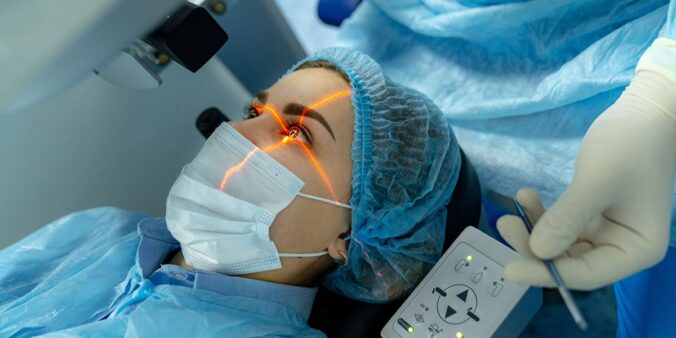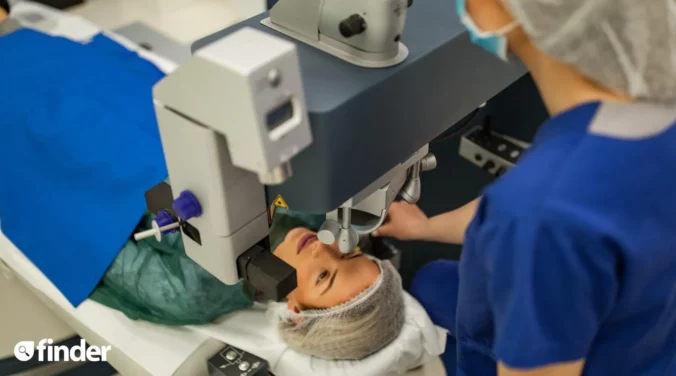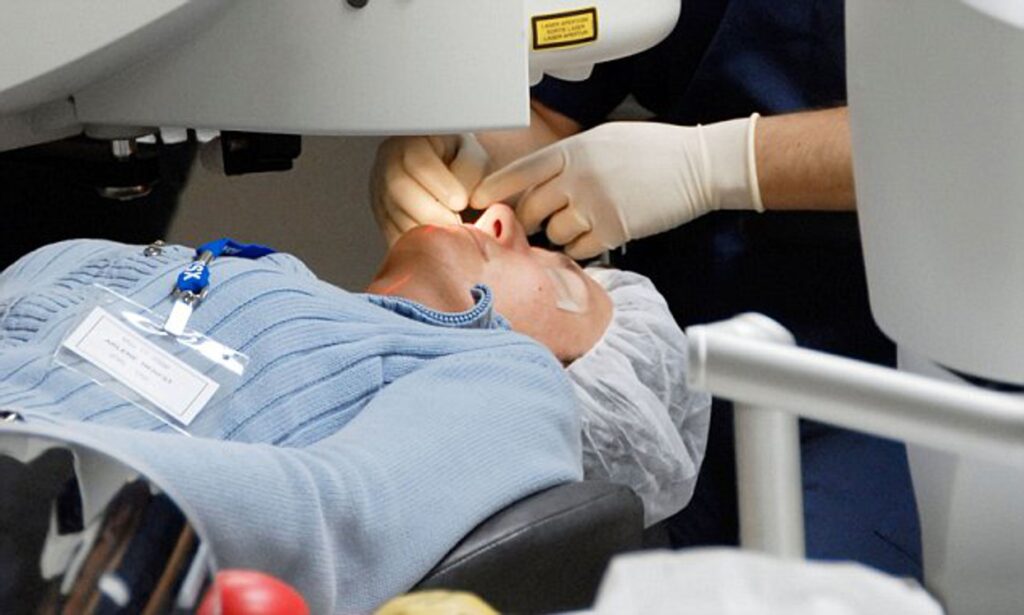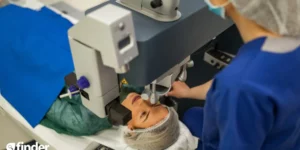Laser eye surgery has become an increasingly popular option for those looking to correct their vision and reduce their reliance on glasses or contact lenses. With the advancements in technology, there are now various laser eye surgery options available to suit different needs and preferences. However, it is crucial to carefully consider your choices and select the best option for your specific situation. In this article, we will delve into the reasons why it is essential to choose the best laser eye surgery options and explore various factors that should be taken into account.
Understanding Laser Eye Surgery
Laser eye surgery, also known as refractive surgery, is a transformative procedure that has revolutionized the field of ophthalmology. By harnessing the power of advanced laser technology, this innovative surgery aims to correct common vision problems by reshaping the cornea, the transparent front part of the eye. Through precise alterations to the corneal structure, laser eye surgery can address issues such as nearsightedness (myopia), farsightedness (hyperopia), and astigmatism, ultimately leading to improved vision and reduced dependency on corrective eyewear.
When considering best laser eye surgery, it’s essential to understand the various types of procedures available. From LASIK to PRK, each technique offers unique advantages and considerations. Consulting with a qualified ophthalmologist can help determine the most suitable option based on your individual needs and eye health.
Before undergoing laser eye surgery, patients typically undergo a comprehensive eye examination to assess their candidacy for the procedure. This evaluation helps the eye surgeon determine the health of the eye, the stability of the prescription, and the potential outcomes of the surgery. Additionally, patients are educated about the different types of laser eye surgery available and the specific benefits and risks associated with each option.
The Basics of Laser Eye Surgery
The cornerstone of laser eye surgery lies in the precise reshaping of the cornea to optimize visual acuity. During the procedure, an excimer laser, a specialized device that emits a cool ultraviolet light beam, is used to ablate microscopic amounts of corneal tissue with exceptional accuracy. This reshaping process allows light to properly focus on the retina, correcting refractive errors and enhancing overall vision quality. The entire surgery is typically quick and painless, with many patients experiencing noticeable improvements in their vision almost immediately after the procedure. Read more about laser eye surgery on: Laser Eye Surgery Sydney
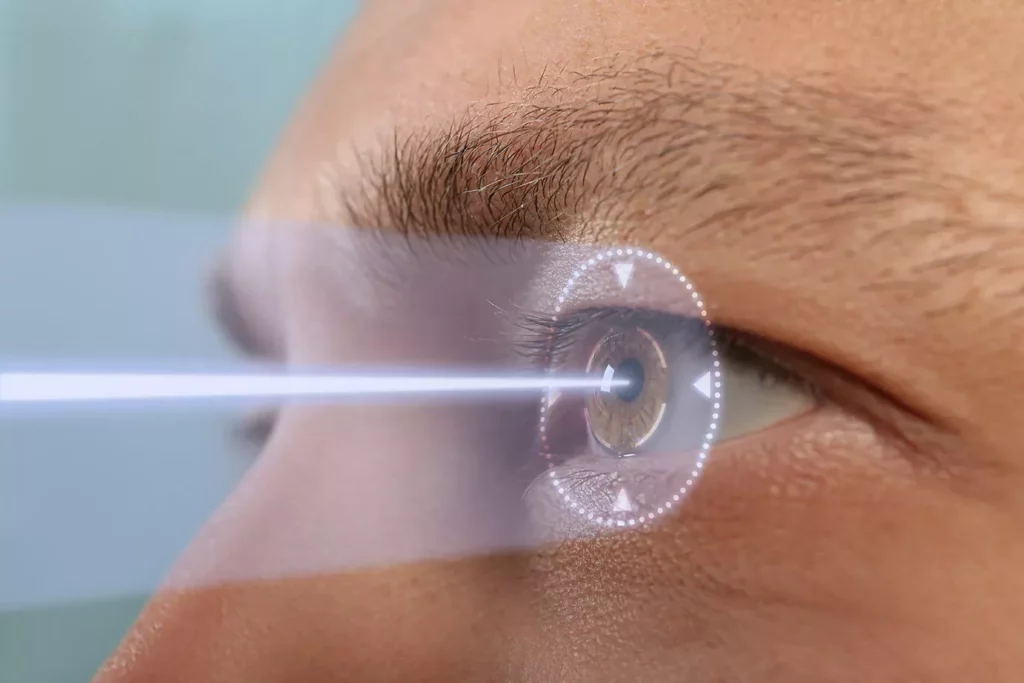
Different Types of Laser Eye Surgery
There are several advanced techniques in laser eye surgery, each tailored to address specific visual impairments and patient preferences. LASIK (Laser-Assisted in Situ Keratomileusis) is one of the most popular procedures, involving the creation of a thin flap in the cornea to access the underlying tissue for reshaping. PRK (Photorefractive Keratectomy) is another option where the outer layer of the cornea is removed entirely before the laser treatment. LASEK (Laser Epithelial Keratomileusis) is a variation that combines elements of both LASIK and PRK, offering a suitable alternative for individuals with thinner corneas or specific corneal conditions.
Factors to Consider When Choosing a Laser Eye Surgery Option
When deciding which laser eye surgery option is best for you, there are several crucial factors that should be taken into consideration.
One important aspect to consider is the technology being used in the laser eye surgery procedure. Advancements in technology have led to various types of laser eye surgeries, each with its own benefits and considerations. For example, LASIK (Laser-Assisted in Situ Keratomileusis) and PRK (Photorefractive Keratectomy) are two common types of laser eye surgeries, with LASIK being known for its quick recovery time and PRK being suitable for patients with thin corneas. Understanding the technology behind each procedure can help you make an informed decision based on your specific eye condition and needs.
Safety and Risks Involved
While laser eye surgery is generally considered safe, it is still a surgical procedure that carries some risks. It is essential to thoroughly discuss any potential risks and complications with your surgeon and ensure that you are comfortable with the safety measures in place at the clinic or hospital where the procedure will be performed.
Moreover, it is crucial to inquire about the pre-operative and post-operative care provided by the clinic or hospital. Proper care before and after the surgery can significantly impact the healing process and overall success of the procedure. Understanding the protocols for follow-up appointments, medication management, and potential complications can help you feel more confident and prepared for the surgery. Learn more about healing process at https://www.ncbi.nlm.nih.gov/books/NBK470443/
Cost and Insurance Coverage
The cost of laser eye surgery can vary significantly depending on factors such as the type of procedure, the surgeon’s experience, and the location of the clinic. Additionally, many insurance plans do not cover the cost of laser eye surgery, so it is crucial to understand the financial implications involved and explore financing options if needed.
When considering the cost, it is essential to factor in the long-term savings that laser eye surgery can provide. While the initial cost may seem significant, the potential savings on prescription glasses or contact lenses over time can make it a cost-effective investment in your vision health. Some clinics may offer financing plans or discounts for multiple procedures, so be sure to inquire about all available options to make an informed decision.
Surgeon’s Experience and Reputation
The experience and reputation of the surgeon performing the laser eye surgery are vital considerations. Research the surgeon’s credentials, check patient reviews and testimonials, and feel free to ask for before-and-after photos of previous patients. A skilled and experienced surgeon can significantly impact the success and outcome of the procedure.
Furthermore, it is beneficial to inquire about the surgeon’s involvement in ongoing education and training in the field of laser eye surgery. A surgeon who stays updated on the latest advancements and techniques is more likely to provide optimal care and outcomes for their patients. Additionally, discussing any specific concerns or expectations with the surgeon during the consultation can help establish a good rapport and ensure that you are both on the same page regarding the goals of the surgery.
Benefits of Choosing the Best Laser Eye Surgery Options
Opting for the best laser eye surgery options can offer numerous benefits, enhancing both your vision and quality of life.
Improved Vision Quality
One of the primary advantages of laser eye surgery is the significant improvement in vision quality. Many individuals achieve 20/20 vision or better following the procedure, enabling them to see clearly without the need for corrective eyewear.
Furthermore, laser eye surgery can correct common vision issues such as nearsightedness, farsightedness, and astigmatism. By reshaping the cornea with precision, these procedures aim to provide long-lasting clarity and sharpness of vision.
Long-Term Cost Effectiveness
Although laser eye surgery may have an upfront cost, it can be a more cost-effective option in the long run. With reduced or eliminated reliance on glasses or contact lenses, individuals can save money on ongoing vision correction expenses.
Additionally, the convenience of not having to purchase prescription eyewear or supplies regularly can lead to significant savings over time. Investing in laser eye surgery is not just a one-time expense but a long-term investment in your visual health and well-being.
Quick Recovery Time
Recovery time after laser eye surgery is relatively quick, with most individuals experiencing improved vision within a few days. Compared to other surgical procedures, laser eye surgery offers a faster recovery, allowing individuals to resume their regular activities sooner.
It’s important to follow post-operative care instructions provided by your eye surgeon to ensure optimal healing and outcomes. By attending follow-up appointments and adhering to recommended guidelines, you can support a smooth recovery process and enjoy the benefits of enhanced vision sooner.
Potential Drawbacks of Laser Eye Surgery
While laser eye surgery offers considerable benefits, it is essential to be aware of the potential drawbacks and limitations.
Before undergoing laser eye surgery, it is crucial to have a thorough understanding of the procedure and its potential implications. While the surgery can greatly improve vision and quality of life for many individuals, there are certain considerations to keep in mind. Click here to learn more about quality of life.
Possible Side Effects and Complications
As with any surgical procedure, there is a risk of side effects and complications after laser eye surgery. These can include dry eyes, glare, halos, and experiencing difficulty with night vision. However, the majority of these side effects are temporary and tend to improve over time.
It is important for patients to discuss these potential side effects with their eye surgeon to have a realistic expectation of what to expect post-surgery. Understanding the temporary nature of these side effects can help alleviate concerns and ensure a smoother recovery process.
Not Suitable for Everyone
Laser eye surgery may not be suitable for individuals with certain eye conditions or medical conditions that could pose a risk during the procedure. It is imperative to undergo a comprehensive eye examination and consultation with a qualified eye surgeon to determine your candidacy for laser eye surgery.
Factors such as the thickness of the cornea, the stability of your vision prescription, and overall eye health play a crucial role in determining whether you are a suitable candidate for laser eye surgery. A thorough evaluation by an experienced eye surgeon will help identify any potential risks and ensure the best possible outcome for your vision correction needs.

Preparing for Laser Eye Surgery
In preparation for laser eye surgery, several steps should be followed to ensure the best possible outcome.
Initial Consultation and Eye Examination
Prior to undergoing laser eye surgery, an initial consultation with an eye surgeon is essential. During this consultation, your eyes will be thoroughly examined to assess their health and determine your suitability for laser eye surgery. The surgeon will also discuss the procedure in detail, including any potential risks and precautions.
During the eye examination, the surgeon will use advanced diagnostic tools to evaluate the shape and thickness of your cornea, the size of your pupils, and the overall health of your eyes. This comprehensive assessment will help the surgeon determine the most appropriate laser eye surgery technique for your specific needs.
In addition to assessing your eye health, the surgeon will also consider your medical history and any pre-existing conditions that may affect the success of the surgery. It is important to disclose any medications you are currently taking, as well as any previous eye surgeries or treatments you have undergone.
What to Expect on the Day of Surgery
On the day of the surgery, it is crucial to follow any specific instructions provided by the surgeon or medical team. This may include refraining from wearing contact lenses for a specific period before the procedure and not consuming any food or drink for a designated amount of time prior to surgery. These instructions are designed to ensure the accuracy of the laser treatment and minimize the risk of complications.
When you arrive at the surgical facility, you will be greeted by a friendly and knowledgeable staff who will guide you through the entire process. Before the surgery begins, you will be given a mild sedative to help you relax and ensure your comfort throughout the procedure.
The surgery itself is relatively quick and painless, with the majority of individuals experiencing minimal discomfort during the procedure. The surgeon will use a specialized laser to reshape the cornea, correcting any refractive errors and improving your vision. The entire process typically takes less than 30 minutes per eye, and you will be able to return home shortly after the surgery.
After the surgery, it is important to follow the post-operative instructions provided by the surgeon. This may include using prescribed eye drops, wearing protective eyewear, and avoiding activities that may strain your eyes, such as reading or watching screens for extended periods.
By following these instructions and attending all scheduled follow-up appointments, you can ensure a smooth recovery and optimize the long-term success of your laser eye surgery.

